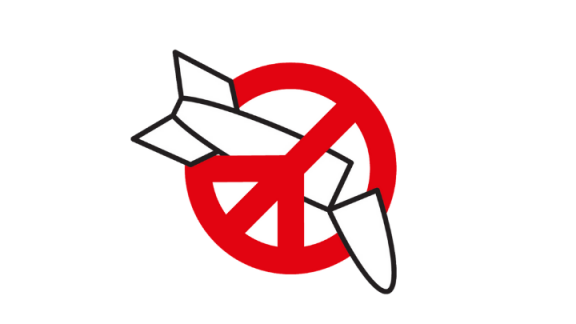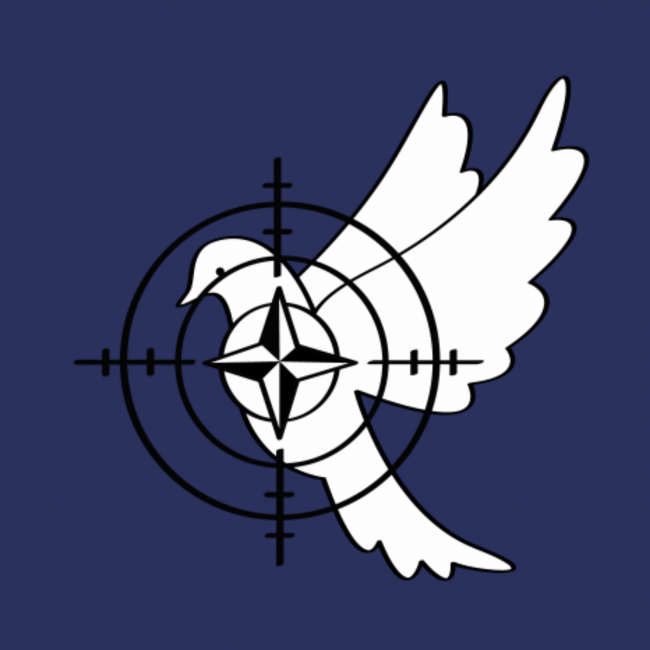Two NATO member states intend to take part at the first ‘Meeting of State Parties’ of the nuclear Ban Treaty next year in Vienna. Will other NATO member states follow?
At the Lisbon Summit (2010), NATO adopted a Strategic Concept in which the military organization defines itself as a nuclear alliance: “As long as nuclear weapons exist, NATO will remain a nuclear alliance.” This attitude has not changed, quite the contrary. At the last summit in Brussels (June 2021), the NATO heads of state and government adopted the report ‘NATO 2030: united for a new era’, which will be poured into a new strategic concept at the next summit in Madrid (June 2022). The report states that NATO “should continue and revitalize the nuclear-sharing arrangements that constitute a critical element of NATO's deterrence policy.” The United States (US) has deployed between 100 and 150 ‘forward-deployed’ nuclear weapons in five European countries (Belgium, Germany, Italy, the Netherlands and Turkey) that from next year on will be replaced by new B61-12 nuclear bombs. Apart from Turkey, the combat aircraft of the countries concerned are responsible for their deployment ('nuclear sharing'). This arrangements primarily serve a political purpose: “to ensure the broadest possible participation by Allies concerned in the agreed nuclear burden-sharing arrangements to demonstrate Alliance unity” (Brussels Summit Communiqué, 2021)
The TPNW debate in Europe
However, the common position of NATO as a nuclear alliance is coming under pressure. Last year, Rolf Mützenich, the leader of the Social Democrats (SPD) in the Bundestag, said that Germany should “exclude the stationing of US nuclear weapons in the future.” Germany never denied nor confirmed the presence of US nuclear arms on its territory (at the Büchel air base). Mützenich brought their existence back into the political debate. SPD became the biggest party after the September 26 elections, and entered in a coalition with the Greens and the liberal FDP last month. In their agreement the new government declared that Germany will participate as an observer in the first Meeting of State Parties (MSP) of the Treaty on the Prohibition of Nuclear Weapons (TPNW) to be held in Vienna (March 22 – 24, 2022). Only one month earlier, Norway, another NATO member state also decided to attend as an observer. The debate is raging in other NATO member states as well. The Belgian coalition agreement (30 September 2020) states that it wants to examine - “together with European NATO allies” - “how the UN Treaty on the Prohibition of Nuclear Weapons can give a new impetus to multilateral nuclear disarmament.” Although the Belgian Foreign Minister – under NATO pressure - recently said that the Nuclear Ban Treaty is not the right instrument for nuclear disarmament, the German example could convince Belgium to follow it. Last week, in another nuclear hosting state, a Dutch MP put the question about joining the MSP as an observer to a vote in parliament. Although the motion was defeated (getting 68 of the 150 seats) in numbers, two parties involved in coalition negotiations (D66 & Christian Union) voted in favour. Nine parties overall supported the proposal.
Affecting NATO’s nuclear doctrine consensus
This development appears to affect the consensus on NATO's nuclear doctrine. Since its signing in July 2017, NATO has been campaigning almost aggressively against the nuclear ban treaty. The closing statement of the NATO summit in Brussels states: “We reiterate our opposition to the Treaty on the Prohibition of Nuclear Weapons (TPNW) which is inconsistent with the Alliance's nuclear deterrence policy, is at odds with the existing non-proliferation and disarmament architecture, risks undermining the NPT, and does not take into account the current security environment.” NATO claims that the NPT remains “the cornerstone of the global nuclear non-proliferation and disarmament architecture” and that its allies are “strongly committed to the full implementation of the NPT in all its aspects”. The NPT entered into force more than half a century ago and didn’t prevent huge investment programs in nuclear weapons arsenals. Despite its declared commitment to the NPT, NATO’s nuclear member states (US, UK, France) spent $49.3 billion last year on the modernization and maintenance of nuclear weapons, or 68% of total investment according to an ICAN report.
Although NATO and its member states have claimed for decades that it is “committed to arms control, disarmament and non-proliferation”, in practice the opposite is happening. This spring, British Prime Minister Boris Johnson declared UK's intention to increase its nuclear warhead stockpile by more than 40% (from 180 to 260), which is in breach with its obligations under the NPT.
The European Peace Movement
Several important international meetings will take place in 2022. The 10th NPT Review Conference will be held in New York from January 4 to 28. Two months later State Parties of the TPNW will meet in Vienna. In June, NATO will hold its next NATO summit and it is expected that the alliance will reaffirm its policy of nuclear deterrence. It will be a crucial year for the peace movement in Europe to increase pressure on other NATO member states to follow the Norwegian and German example to widen the crack in the nuclear 'solidarity' within NATO. Within the Belgian government there is disagreement among the coalition parties whether to participate as an observer at the MSP in Vienna or not. To be an observer would follow the logic of the statement in the coalition agreement to examine how the TPNW could be an instrument in world wide nuclear disarmament. The Belgian peace movement is planning several initiatives to increase pressure on the government.
NATO's fierce stance shows that the alliance has understood that the TPNW is endangering NATO's nuclear doctrine. For example, NATO Secretary General Stoltenberg warned “that US nuclear weapons might be moved further east (and closer to Russia) if Germany dropped out of the arrangement.” That cannot of course be the intention. Everywhere there have been polls in Europe, it shows that at least three quarters of the population wants nuclear weapons to be banned. The European peace movement is working hard – like has been done with common actions in six NATO countries last September - to get nuclear weapons back higher on the political agenda, so that the will of the population is finally translated into policy. A first step is to make Europe nuclear-free, which requires negotiations and an agreement with Russia. Like climate change, nuclear weapons pose a planetary threat that urgently needs to be addressed with a total ban on nuclear weapons. That is the only way to avoid that the nuclear genocides in Hiroshima and Nagasaki will be repeated.



